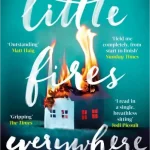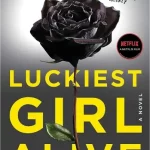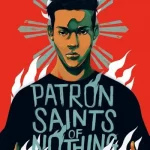
2 Sentence The Hate U Give Summary
Angie Thomas’ debut novel, “The Hate U Give,” masterfully weaves together familiar and unheard stories. It tells the well-known narrative of unarmed young Black men being killed by the police but also sheds light on the often-overlooked tale of a community mourning for a life lived with dreams, fears, and aspirations.
Summary Read Time: Less than 6 minutes
Actual Book Length: 454
First Published in: 2017
Below is the detailed yet quick The Hate U Give summary:
The Hate U Give summary – Part 1
Starr Carter, a 16-year-old African American girl, attends a spring break party in her neighborhood, Garden Heights. Despite feeling out of place due to her enrollment at a predominantly white private school, Williamson Prep, Starr tries to reconnect with her community.
At the party, she encounters Khalil, a close childhood friend. Their reunion is abruptly interrupted by gunfire, prompting them to leave the scene quickly in Khalil’s car.
As they drive away, discussing their lives and reminiscing about their childhood, they are stopped by a police officer, later identified as One-Fifteen. The tension escalates rapidly when Khalil, who is unarmed, is instructed to step out of the vehicle.
The situation turns tragic when Khalil, after checking on Starr, is shot three times by One-Fifteen and dies. Starr is left traumatized, witnessing her friend’s unjust death and experiencing rough treatment by the police. The officers leave Khalil’s body exposed on the street, adding to Starr’s distress and setting the tone for the events that follow.
Also Read: Mr Wrong Number by Lynn Painter
The Hate U Give summary – Part 2
Starr is brought home by her parents, Maverick and Lisa, who are deeply concerned for her. The incident triggers painful memories for Starr, particularly of another childhood friend, Natasha, who was also a victim of gun violence.
The family dynamics are explored, revealing Maverick’s past as a former gang member who now owns a grocery store and is a reformed, responsible father. Lisa, a nurse, provides emotional support, balancing the family’s needs.
Starr’s relationship with her half-brother Seven, who shares a complicated family connection, and her younger brother Sekani is also depicted.
The family decides to keep Starr’s involvement in the shooting a secret to protect her from potential backlash and police scrutiny. Starr grapples with guilt and the burden of being the sole eyewitness to Khalil’s murder.
The Hate U Give summary – Part 3
Starr’s life at Williamson Prep is marked by her feeling out of place and unable to share her trauma. She maintains a secret relationship with her white boyfriend, Chris, hiding it from her father due to his disapproval of interracial relationships.
Starr’s friendships at school, especially with Hailey and Maya, suffer due to their inability to understand her life in Garden Heights and the impact of Khalil’s death on her.
The narrative delves into Starr’s internal struggle about whether to publicly speak about the shooting. She fears being targeted by police and misunderstood by her community, while also being frustrated by the media’s negative portrayal of Khalil. Starr’s silence is challenged by her increasing awareness of the injustice surrounding Khalil’s death and the systemic issues at play.
The Hate U Give summary – Part 4 (Ending)
Motivated by her family’s support and the wider community, Starr finds the courage to speak out. She becomes actively involved in protests against police brutality and systemic racism, facing opposition from her school peers and threats from local drug lords. Her involvement in the movement marks her growth from a frightened witness to an empowered activist.
Starr’s journey to finding her voice culminates in her testimony before a grand jury regarding the shooting. She strives to humanize Khalil and confront the prejudices and systemic failures that led to his death. The grand jury’s decision not to indict One-Fifteen sparks riots, during which Starr’s family store is destroyed, symbolizing both loss and a new beginning.
The novel concludes with Starr embracing her identity and realizing the significance of her voice. She continues to honor Khalil’s memory and advocate for justice and change.





